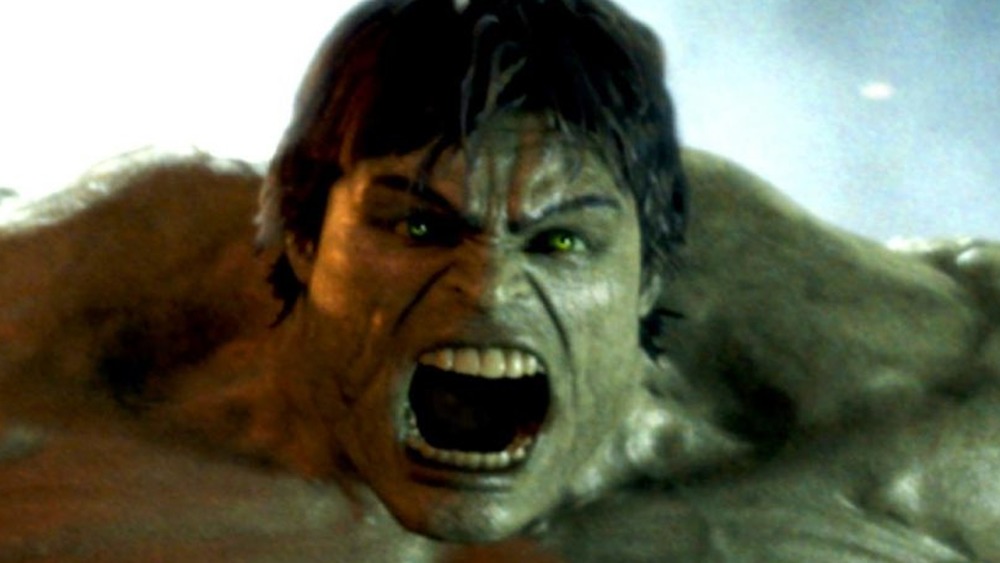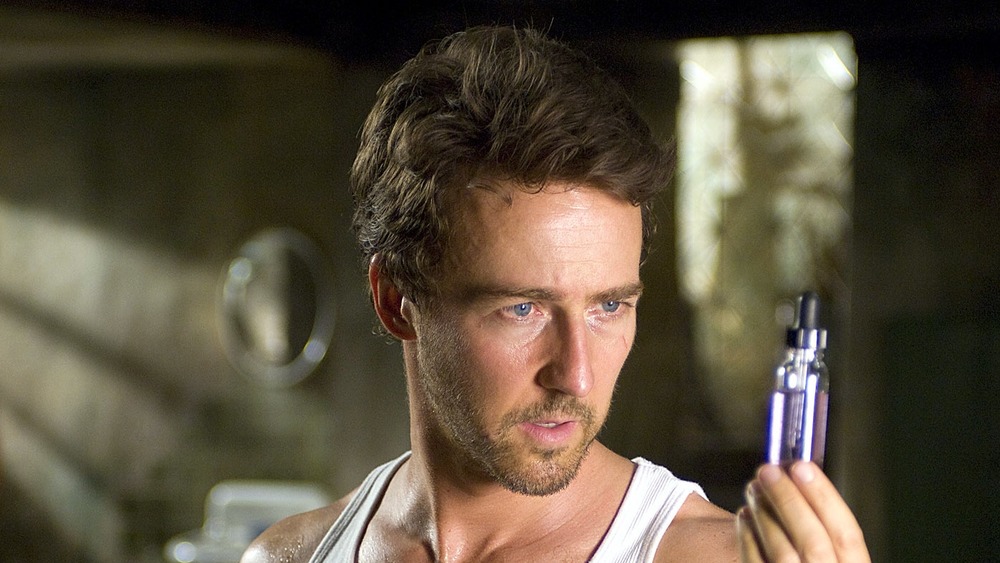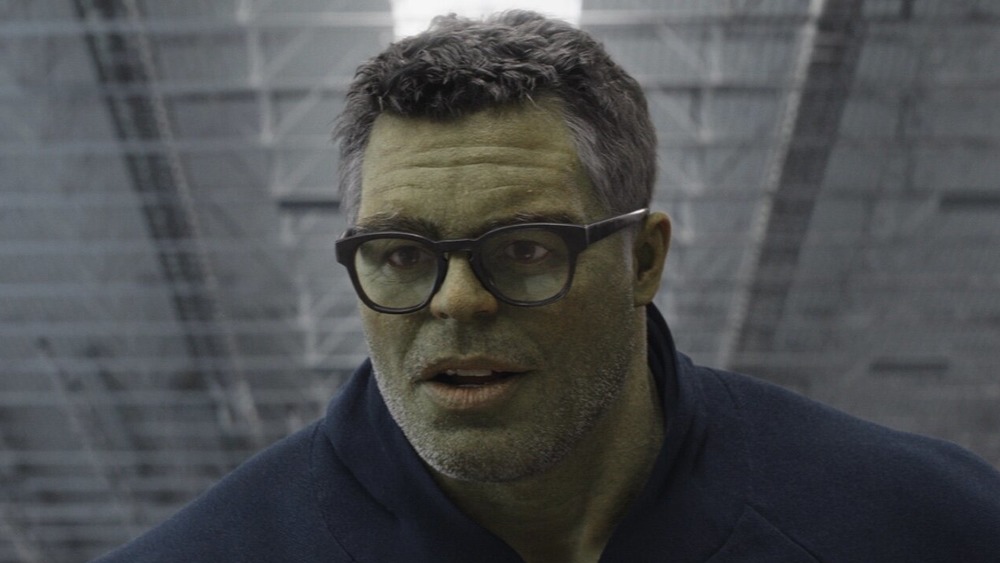The Ending Of The Incredible Hulk Explained
Though the Marvel Cinematic Universe hardly calls back to it, 2008's The Incredible Hulk, starring Edward Norton, was actually the second entry in popular entertainment's most massive mega-franchise. At the time, of course, it was simply another comic book film like Christopher Nolan's Dark Knight films or the other Hulk film that came before it in 2003. Its release did not have the same pageantry or fan-fueled hype as a solo movie featuring a member of the Avengers would today.
The community consensus surrounding The Incredible Hulk has remained roughly as lukewarm as it was when the film first released. Most fans would not consider it a necessary watch to get the most out of the MCU. However, that doesn't mean the movie is completely devoid of any value for the franchise. MCU viewers don't meet Bruce Banner again until 2012's Avengers, when he returns with a new face and a different perspective on the Hulk. But the change in his worldview is sparked in The Incredible Hulk.
The Incredible Hulk is about Bruce Banner learning to control the Hulk
The Incredible Hulk isn't an origin story for Bruce Banner, but it does establish his character for the rest of the MCU. It follows the classic formula that many previous Hulk properties like the 1970s TV series did. After being exposed to gamma radiation and becoming the Hulk, Bruce Banner travels in search of a cure to his condition while trying to draw as little attention as possible. The film handles this premise differently, however, by showing Banner also learning to control the Hulk as he strives to "cure" it. Throughout the film, we see Banner practicing yoga, biofeedback, and meditation techniques to control his heart rate and emotions for the specific purpose of avoiding transformation. He keeps a heart rate monitor on him at all times and never hesitates to remove himself from a situation if his heartbeat spikes.
However, Banner can no longer avoid becoming the Hulk when a soldier named Emil Blonsky (Tim Roth) uses Banner's blood to transform himself into another Hulk-like creature called Abomination. Faced with Abomination, Banner is forced to stop fighting the Hulk and use him instead. He intentionally transforms in order to fight off Blonsky and wins, whereby Banner's dynamic with the Hulk changes from one of prevention to one of control. The Incredible Hulk's post-credits scene even shows Banner intentionally raising his heart rate to the point of a controlled transformation, training himself to call upon the Hulk at will.
How does this affect the Hulk in the MCU?
Banner reappears four years later for the events of Avengers, but he isn't the same Banner we met in The Incredible Hulk. Aside from the fact that he's got a new face provided by Mark Ruffalo, Banner has a somewhat different approach to dealing with the Hulk. He still fears it and lives in isolation, but is decidedly more willing to use it to his advantage. For instance, in his introductory scene, Banner uses the threat of transforming to learn Black Widow's (Scarlett Johansson) true intentions. Of course, there's always his famous "I'm always angry" party trick in The Avengers' third act, in which he displays full control over his ability to transform. Aside from his extended vacation following Age of Ultron, Banner has shown himself willing to use Hulk for the benefit of others.
This comes to a head in Endgame, in which Banner has begun fully utilizing the Hulk to his advantage. After failing to summon the Hulk during Infinity War, Banner uses science to transform himself into the Hulk while retaining his everyday personality — an iteration of the character called Professor Hulk in the Marvel Comics source material. The end result is a Hulk who is both strong enough to smash and smart enough to not let anyone get hurt. He becomes the ultimate realization of what a controlled Hulk would look like. Whether or not this pattern will continue as Banner appears in upcoming MCU projects like She-Hulk is yet to be seen.


